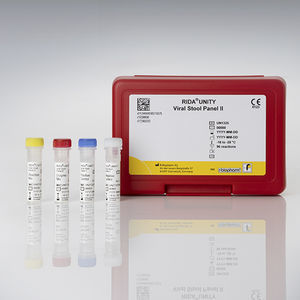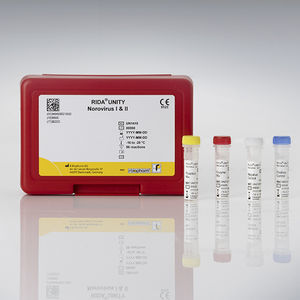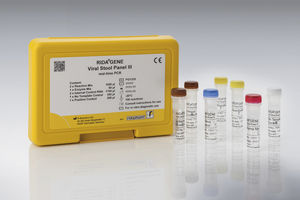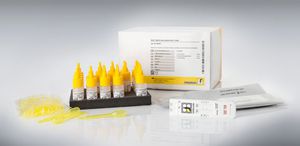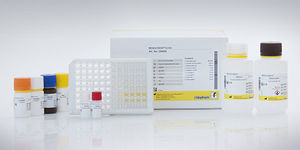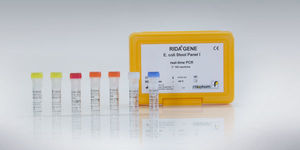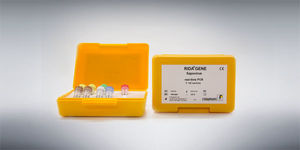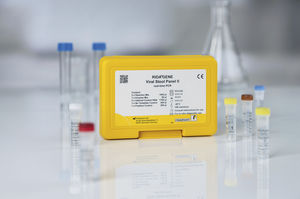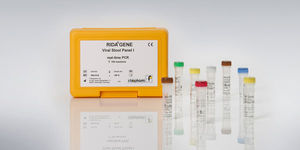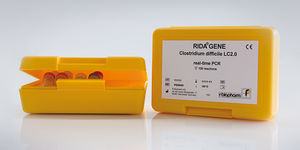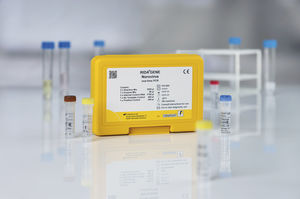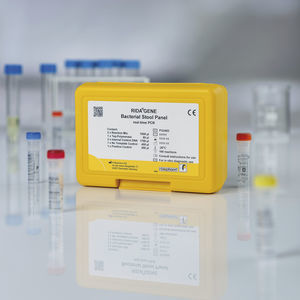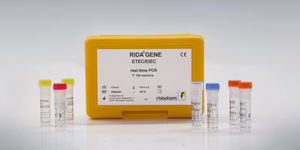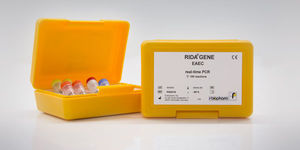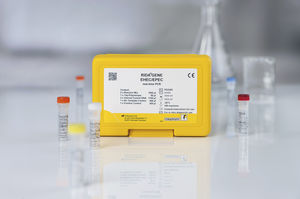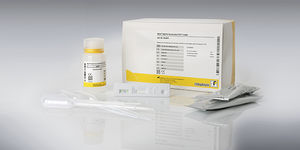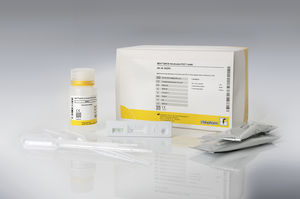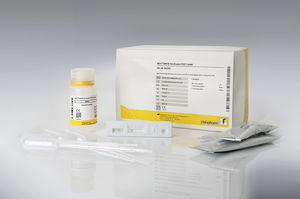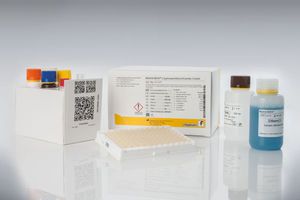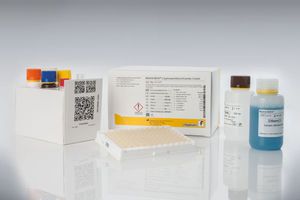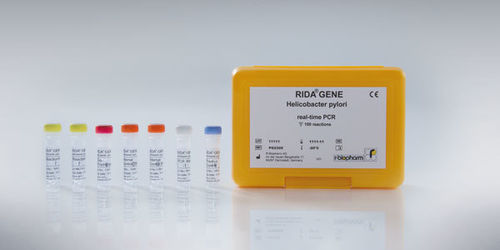
- Laboratory
- Laboratory medicine
- Urease test kit
- R-Biopharm AG
Helicobacter pylori test kit RIDA®GENEfor gastrointestinal infectionsureasetissue
Add to favorites
Compare this product
Characteristics
- Applications
- for gastrointestinal infections
- Tested parameter
- urease
- Micro-organism
- Helicobacter pylori
- Sample type
- tissue, breath
- Analysis mode
- urea, for real-time PCR
Description
For in vitro diagnostic use. RIDA®GENE Helicobacter pylori is a multiplex real-time PCR for the direct, qualitative detection of Helicobacter pylori and its resistance to clarithromycin from human native tissue biopsy material.
The RIDA®GENE Helicobacter pylori multiplex real-time PCR is intended for use as an aid in diagnosis of gastric infections caused by Helicobacter pylori.
General information:
Helicobacter pylori (H. pylori) is a gram-negative rod-shaped bacterium which colonises the human gut. H. pylori increases the secretion of stomach acid and hence leads to different gastric infections such as Type B Gastritis, gastric ulcers or duodenal ulcers. Worldwide, H. pylori has a prevalence rate of 50 %, whereas the infection rate is higher in developing countries compared to developed countries. In Germany, about 33 million people are infected with H. pylori of which 10 – 20 % develop ulcers. While the H. pylori strain type 2 lacks the pathogenicity factors cag and VacA, an infection with H. pylori strain type 1 leads to gastroduodenal ulcers and in case of a chronic infection, significantly increases the risk of gastric cancer. To protect itself from gastric acid, H. pylori settles inside the gastric mucosa. Here, H. pylori splits urea by the enzyme urease to increase the pH value in its close surroundings.
Today, H. pylori is detected by microscopy or by using the helicobacter-urease assay from gastric biopsies. Other detection methods are antigen testing or breath tests.
After diagnosis of H. pylori, different treatment measures are possible.
Catalogs
No catalogs are available for this product.
See all of R-Biopharm AG‘s catalogsRelated Searches
- Assay kit
- Solution reagent kit
- Blood assay kit
- Serum assay kit
- Immunoassay assay kit
- Plasma assay kit
- Infectious disease detection kit
- Diagnostic reagent kit
- Rapid lateral flow test
- Immunoassay rapid diagnostic test
- Molecular test kit
- Respiratory infection test kit
- Clinical assay kit
- Infectious disease rapid diagnostic test
- Cassette assay kit
- Lateral flow test kit
- COVID-19 detection kit
- ELISA assay kit
- Real-time PCR test kit
- Quality control reagent kit
*Prices are pre-tax. They exclude delivery charges and customs duties and do not include additional charges for installation or activation options. Prices are indicative only and may vary by country, with changes to the cost of raw materials and exchange rates.


